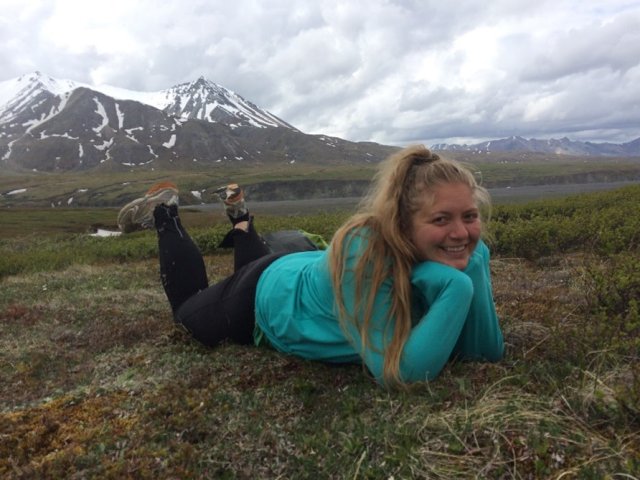Meet EPA Researcher Meghan R. Klasic, Ph.D.

EPA researcher Meghan Klasic is an Interdisciplinary Environmental Geographer with the Office of Research and Development’s Center for Computational Toxicology and Ecology. Meghan studies environmental decision-making processes to understand how the dynamics of power and authority, knowledge and information, and rules and norms influence social and environmental challenges. The goal of her work is to help develop more equitable decision-making that leads to improved environmental and social outcomes.
Tell us about your background.
As an interdisciplinary environmental geographer, I draw on a meandering yet purposeful education portfolio of biophysical and social sciences. I have a bachelor’s in environmental science from Dickinson College, where I studied the use of submerged aquatic vegetation (SAV) as a bio-indicator of stream health. I have a master’s in environmental planning and management from Johns Hopkins University’s Whiting School of Engineering where I studied sustainability, climate change, and water resource management and planning, and I have a Ph.D. in geography with a designated emphasis in computational social science from University of California-Davis. Prior to pursuing my Ph.D., I was a program analyst with U.S. EPA’s Office of Wetlands, Oceans, and Watersheds. I nerded out on the Clean Water Act policy – specifically the Section 319 Nonpoint Source Pollution program.
When did you first know you wanted to work in environmental science?
I grew up in rural Pennsylvania, playing in creeks, camping, hiking, and digging in the dirt. I suppose I always knew I wanted to work in environmental science. As an undergrad I took a freshman seminar on the Chesapeake Bay – a week-long trip of kayaking, picking crabs with a local co-op, and speaking with watermen about their livelihoods. That trip really solidified my interest in environmental science. I owe a lot to my undergrad advisors (Dr. Candie Wilderman and Dr. Michael Heiman) who opened my eyes to the complexities of environmental and social sciences and policy—and the critical part that communities play in this complexity.
What do you like most about your job?
Like a true social scientist- the people. My coworkers are fabulous, intelligent, hardworking researchers and scientists who challenge me in such a good way. Outside the office, I work with folks across sectors—academia, local, federal, Tribal, and international government, nonprofit, business, and the public. I love hearing different perspectives on environmental challenges, processes, and solutions. I love getting out in the field and experiencing people, culture, and the environment.
How does your science matter?
My science matters because you can’t separate environment or ecology from people. They are intertwined in such a beautiful and complex way. My research aims to improve the environment (e.g., water quality, soil health, robust vegetation, and healthy wildlife) and social systems (e.g., more equitable benefits, justice in decision-making, happy and thriving individuals and communities). Working on these complex social and environmental challenges is quite literally, the best, most frustrating, most rewarding work I could ever imagine being a part of!
If you weren’t a scientist, what would you be doing?
If I went outside the environmental realm, I’d probably own and run a local brewery/dog park that also had a research arm. It would be a social-ecological hub that focused on community. I’d partner with universities to support research on anything and everything from sustainable urban agriculture to environmental advocacy and collaborative governance. The dog park and beer is for fun – happy people do better work. I love the idea of building community through business and providing a space for art, creativity, science, and discussion. Besides, how many times have you visited a brewery or a dog park and not been deliriously happy?
What advice would you give a student interested in a career in science?
Get used to rejection—but don’t let it stop you—learn from it. Don’t be afraid to ask for what you want—and if you don’t know what you want, that’s ok—try something new, even if it seems completely unrelated to what you know or are studying. Talk to people who you think are doing cool things. People love sharing their experiences. Also, I’d be remiss in not giving a shout out to my Ph.D. Advisor, Mark Lubell—if you do a Ph.D., a good dissertation is a done dissertation.
What’s your role in the Pickle Pond research project?
I am a co-lead of the Pickle Pond project—I’m working to understand how environmental remediation/restoration impacts people—and how social and environmental systems change over time. I want to understand the benefits (and/or burdens) that communities feel as a result of environmental restoration work. I also want to understand how people perceive these newly restored sites, how they access and use them, and what they’d like to see happen with these sites in the long-term.
Editor's Note: The opinions expressed herein are those of the researcher alone. EPA does not endorse the opinions or positions expressed.
